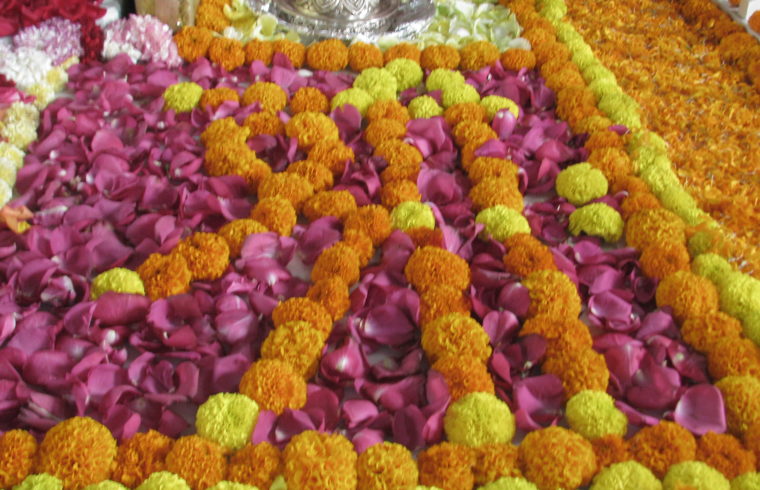Prayer is an act of communication by humans with the sacred or holy-God, the gods, the transcendent realm, or supernatural powers. Prayer has been described in its sublimity as “an intimate friendship, a frequent conversation held alone with the Beloved”. The most important part of any prayer, whether it be a prayer of petition, of thanksgiving, of praise of Lord, or of confession, is the introspection it provides, the moment that we spend looking inside ourselves, seeing our role in the universe and our relationship to God and emphasizes the One to whom prayer is directed. For an observant Sai devotee, prayer is not simply something that happens in temple once a week (or even four times a day). Prayer is an integral part of everyday life. Observant devotees are constantly reminded of Sai’s presence and of our relationship with God, because we are continually praying to Him.
Our first thought in the morning, even before we get out of bed, is a prayer thanking Sai for returning our souls to us. Prayers are to be recited before enjoying any material pleasure, such as eating or wearing new clothes; before performing any acts; upon seeing anything unusual; at the site of a great tragedy; whenever some good or bad thing happens; and prayers to recite before going to bed at night. All of these prayers are in addition to formal prayer services, which are performed every weekday and at additional times on festivals and holy days.
Many people today do not see the need for regular, formal prayer. “I pray when I feel inspired to, when it is meaningful to me,” they say. This attitude overlooks two important things: the purpose of prayer, and the need for practice.
One purpose of prayer is to increase awareness of God in one’s life and the role that God plays in one’s life. If one will only pray when one feels inspired (that is, when one is already aware of God), then one will not increase their awareness of God.
In addition, if one wants to do something well, one has to practice it continually, even when one doesn’t feel like doing it. This is as true of prayer as it is of playing a sport, playing a musical instrument, or writing. The sense of humility and awe of God that is essential to proper prayer does not come easily to modern man, and will not simply come to one when one feels the need to pray. If one waits until inspiration strikes, one will not have the skills needed to pray effectively. Before one starts praying regularly, one finds that when one wants to pray, one doesn’t know how. One doesn’t know what to say, or how to say it, or how to establish the proper frame of mind. If one prays regularly, one will learn how to express them in prayer.
When one says the same prayers day after day, one might expect that the prayers would become routine and would begin to lose meaning. While this may be true for some people, this is not the intention of prayer. The most important part of prayer is the introspection it provides. Accordingly, the proper frame of mind is vital to prayer. The mindset for prayer is referred to as “bhavah”, which is generally translated as “approach”, “intent” or “devotion”. The minimum level of bhavah is an awareness that one is speaking to God and an intention to fulfill the obligation to pray with devotion. If one does not have this minimal level of bhavah, then one is not praying; they are merely reading. In addition, it is preferred that one have a mind free from other thoughts, that one know and understand what one is praying about and that one think about the meaning of the prayer. Satcharita details the prerequisites of prayer as explained by Baba generally referred to as nine forms of devotion


